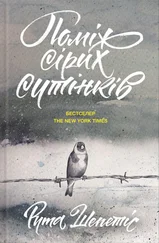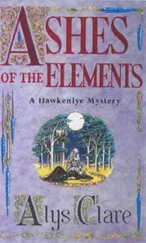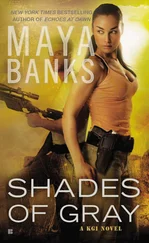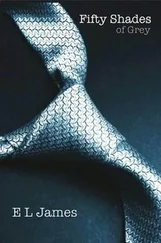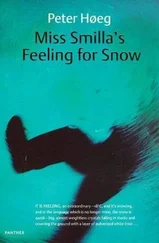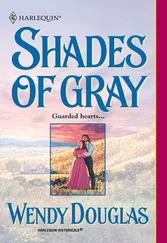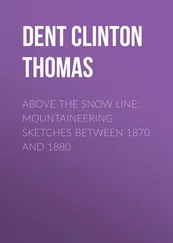“You should feel sorry for Mrs. Arvydas,” said Mother, “just as we feel sorry for you. Andrius and Mrs. Arvydas have put extra food in your mouth many a night. How can you be so ungrateful?”
“Well, then you’ll have to bribe that cranky cow who signed,” said the bald man. “You can buy her off to mail your letters.”
We had all written letters that Mother planned to mail to her “contact,” a distant relative who lived in the countryside. The hope was that Papa had done the same thing. We weren’t able to sign our names or write anything specific. We knew the Soviets would read the notes. We wrote that we were all well, having a lovely time, learning good trade skills. I drew a picture of Grandma and wrote “Love from Grandma Altai” underneath with my scribbled signature. Surely Papa would recognize the face, my signature, and the word Altai . Hopefully the NKVD wouldn’t.
MOTHER HELD THREE sterling silver serving pieces she had sewn into the coat. She had carried them since we were deported.
“Wedding gifts,” she said, holding the silver, “from my parents.” Mother offered one piece to the grouchy woman in exchange for mailing letters and picking up sundries and news when she went to the village. She accepted.
Everyone longed for news. The bald man told Mother of a secret pact between Russia and Germany. Lithuania, Latvia, Estonia, Poland, and others were divided between Hitler and Stalin. I drew the two of them, dividing countries like children dividing toys. Poland for you. Lithuania for me. Was it a game to them? The bald man said Hitler broke his agreement with Stalin, because Germany invaded Russia a week after we were deported. When I asked Mother how the bald man knew about the pact, she said she didn’t know.
What had happened to our house and everything we owned since we were deported? Did Joana and my other relatives know what had happened? Maybe they were looking for us.
I was glad that Hitler had pushed Stalin out of Lithuania, but what was he doing there?
~
“Nothing could be worse than Stalin,” said one of the men at the dining room table. “He is the epitome of evil.”
“There is no better or worse,” said Papa, his voice low. I leaned farther around the corner to listen.
“But Hitler won’t uproot us,” said the man.
“Maybe not you, but what about us Jews?” said Dr. Seltzer, my father’s close friend. “You heard the circulation. Hitler made the Jews wear armbands.”
“Martin’s right,” said my father. “And Hitler’s setting up a system of ghettos in Poland.”
“A system? Is that what you call it, Kostas? He’s locked up hundreds of thousands of Jews in Lodz and sealed off even more in Warsaw,” said Dr. Seltzer, his voice soaked with desperation.
“It was a bad choice of words. I’m sorry, Martin,” said Papa. “My point is that we’re dealing with two devils who both want to rule hell.”
“But Kostas, to remain neutral or independent will be impossible,” said a man.
“Lina!” whispered Mother, grabbing me by my collar. “Go to your room.”
I didn’t mind. The constant talk of politics bored me. I was only listening for my drawing game. I tried to draw their expressions simply by hearing the conversation but not seeing their faces. I had heard enough to draw Dr. Seltzer.
~
Jonas continued to work with the two Siberian women making shoes. They liked him. Everyone loved Jonas and his sweet disposition. The women advised that he’d best make boots for winter. They looked the other way when he set aside scraps of materials. Jonas was learning Russian much quicker than I was. He could understand a fair amount of conversation and could even use slang. I constantly asked him to translate. I hated the sound of the Russian language.
I THRASHED NEXT to Mother in the beet field. Black boots appeared near my feet. I looked up. Kretzsky. His yellow hair parted on the side and cascaded across his forehead. I wondered how old he was. He didn’t look much older than Andrius.
“Vilkas,” he said.
Mother looked up. He rattled off something in Russian, too quickly for me to understand. Mother looked down and then back at Kretzsky. She raised her voice and yelled out to the field. “They’re looking for someone who can draw.”
I froze. They had found my drawings.
“Do any of you draw?” she said, shading her eyes and looking across the field. What was Mother doing? No one responded.
Kretzsky’s eyes narrowed, looking at me.
“They’ll pay two cigarettes for someone to copy a map and a photograph—”
“I’ll do it,” I said quickly, dropping my hoe.
“No, Lina!” said Mother, grabbing my arm.
“Mother, a map,” I whispered. “Maybe it will bring us news of the war or the men. And I won’t have to be in this field.” I thought about giving a cigarette to Andrius. I wanted to apologize.
“I’ll go with her,” said Mother in Russian.
“NYET!” yelled Kretzsky. He grabbed me by the arm. “Davai!” he yelled, pulling me away.
Kretzsky dragged me from the beet field. My arm ached under his grip. As soon as we disappeared from view, he let go of me. We walked in silence toward the kolkhoz office. Two NKVD approached down the row of shacks. One caught sight of us and shouted to Kretzsky.
He looked over to them, then back at me. His posture changed. “Davai!” yelled Kretzsky. He slapped me across the face. My cheek stung. My neck twisted from the unexpected blow.
The two NKVD drew near, watching. Kretzsky called me a fascist pig. They laughed. One of them asked for a match. Kretzsky lit the guard’s cigarette. The NKVD brought his face an inch from mine. He muttered something in Russian, then blew a long stream of smoke in my face. I coughed. He took the burning cigarette and pointed the glowing tip at my cheek. Brown tar stains filled a crack between his front teeth. His lips were chapped and crusty. He stepped back, looking me over, nodding.
My heart hammered. Kretzsky laughed and slapped the guard on the shoulder. The other NKVD raised his eyebrows and made obscene gestures with his fingers before laughing and walking away with his friend. My cheek throbbed.
Kretzsky’s shoulders dropped. He stepped back and lit a cigarette. “Vilkas,” he said, shaking his head and blowing smoke out of the corner of his mouth. He laughed, grabbed my arm, and dragged me toward the kolkhoz office.
What had I just agreed to?
I SAT AT A TABLE in the kolkhoz office. I shook out my hands, hoping to stop them from quivering. A map was placed to my upper left, and a photograph to my upper right. The map was of Siberia, the photo of a family. In the photograph, a black box had been drawn around the man’s head.
An NKVD brought paper and a box with a nice selection of pens, pencils, and drafting supplies. I ran my fingers over the writing utensils, longing to use them for my own drawings. Kretzsky pointed to the map.
I had seen maps in school, but they had never interested me as this one did. I looked at the map of Siberia, shocked by its enormity. Where were we on the map? And where was Papa? I surveyed the details of the plot. Kretzsky pounded his fist on the table, impatient.
Several officers hovered around while I drew. They flipped through files and pointed to locations on the map. The files had papers and photographs affixed to them. I stared at the cities on the map as I was drawing, trying to commit them to memory. I would re-create it on my own later.
Most of the officers left as soon as the map was finished. Kretzsky flipped through files, drinking coffee while I drew the man in the photograph. I closed my eyes and inhaled. The coffee smelled incredible. The room was warm like our kitchen at home. When I opened my eyes, Kretzsky was staring at me.
Читать дальше
![Рута Шепетис Ashes in the Snow [aka Between Shades of Gray] обложка книги](/books/414915/ruta-shepetis-ashes-in-the-snow-aka-between-shades-cover.webp)
